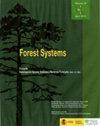Cognitive social capital and local forest governance: community ethnomycology grounding a mushroom picking permit design
IF 0.7
4区 农林科学
Q3 FORESTRY
引用次数: 1
Abstract
Aim of study: The local ecological knowledge shared in rural communities shapes their norms for using their nearby open-access natural resources. We suggest a method to analyse this form of cognitive social capital with an application to a mushroom picking permit. Area of study: Poblet forest in Catalonia (NE Spain). Material and methods: we applied semi-structured questionnaires to pickers in four municipalities and to the governing body of the protected area. Our methodology assesses cognitive social capital combining three instruments: (i) inter-quartile ratio indexes for community cohesion, (ii) pair-wise comparisons across social groups (pickers and decision-makers or DM), and (iii) correlations for mental models linking perceived ecological, social and economic challenges with foreseen solutions. Main results: Analogous perceptions between DM and local pickers were found in most mushroom-related problems, which align with most picking permit design features. The perceived dissimilar behaviour between local and foreign pickers, the need for forest tending –addressing the wildfire risk–, and trash left in the forest is shared among pickers and DM. Moreover, some mental models of the DM showed statistically consistence. At the individual picker level, mushroom eco-literacy relates to family learning and proximity to DM, while links between pickers and DM correlate with increased forest profitability expectations. Research highlights: Strong convergence in cognitive indicators aggregated at the town level indicate a single hermeneutic community among local pickers, which seems to underlie the large permit acceptance but did not explain the differential permit uptake –thus, structural social capital emerges as complementary predictor.认知社会资本与地方森林治理——基于蘑菇采摘许可证设计的社区人种学
研究目的:农村社区共享的当地生态知识形成了他们使用附近开放获取自然资源的规范。我们提出了一种分析这种形式的认知社会资本的方法,并将其应用于蘑菇采摘许可证。研究区域:加泰罗尼亚的波布莱特森林(西班牙东北部)。材料和方法:我们对四个城市的拾荒者和保护区的管理机构进行了半结构化问卷调查。我们的方法结合三种工具评估认知社会资本:(i)社区凝聚力的四分位数间比率指数,(ii)社会群体(挑选者和决策者或DM)之间的配对比较,以及(iii)将感知的生态、社会和经济挑战与可预见的解决方案联系起来的心理模型的相关性。主要结果:在大多数蘑菇相关问题中,DM和当地采摘者之间存在相似的看法,这与大多数采摘许可证的设计特征一致。当地和外国拾荒者之间感知到的不同行为、森林抚育的需要(解决野火风险)以及留在森林中的垃圾在拾荒者和DM之间是共同的。此外,DM的一些心理模型显示出统计上的一致性。在个体采摘者层面,蘑菇生态素养与家庭学习和DM的接近程度有关,而采摘者和DM之间的联系与森林盈利预期的增加有关。研究重点:在城镇层面聚合的认知指标的强烈趋同表明,当地采摘者之间存在单一的解释学社区,这似乎是大规模许可接受的基础,但并不能解释不同的许可接受——因此,结构性社会资本成为互补的预测因素。
本文章由计算机程序翻译,如有差异,请以英文原文为准。
求助全文
约1分钟内获得全文
求助全文
来源期刊

Forest Systems
FORESTRY-
CiteScore
1.40
自引率
14.30%
发文量
30
审稿时长
6-12 weeks
期刊介绍:
Forest Systems is an international peer-reviewed journal. The main aim of Forest Systems is to integrate multidisciplinary research with forest management in complex systems with different social and ecological background
 求助内容:
求助内容: 应助结果提醒方式:
应助结果提醒方式:


